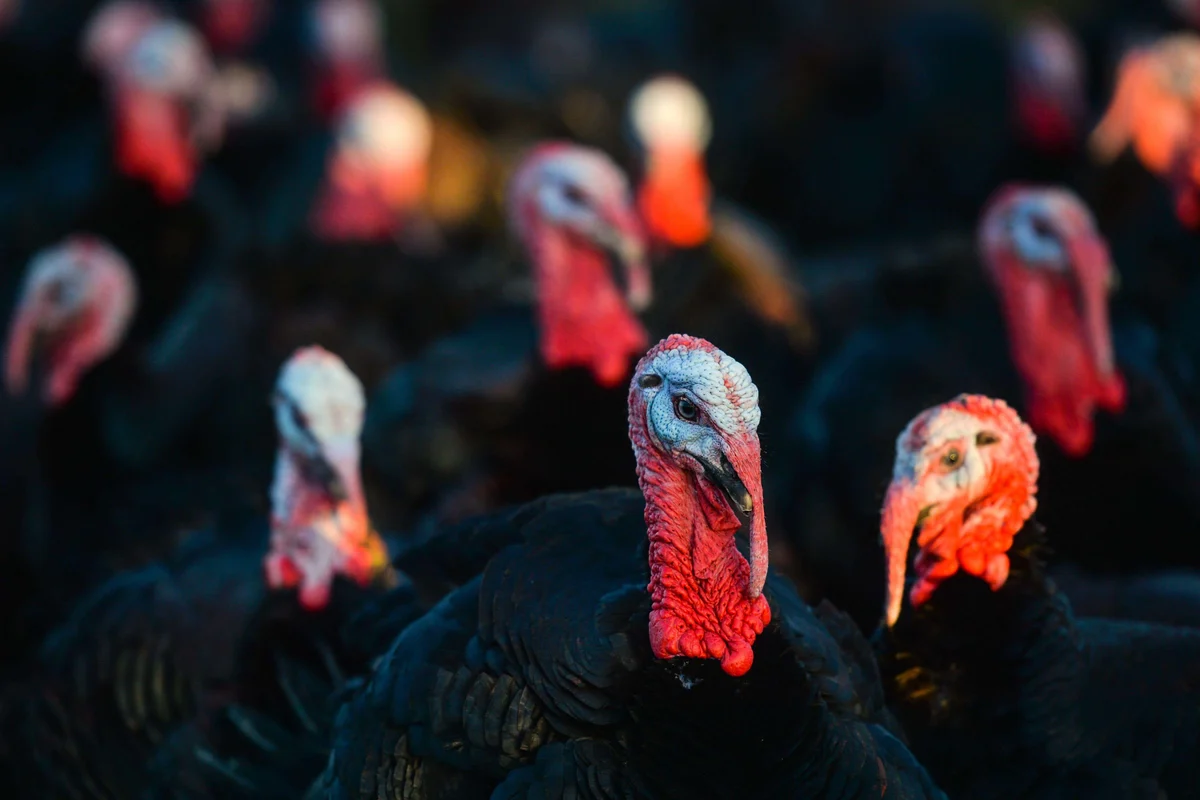Copyright standard

Christmas dinners in the UK are under threat, with outbreaks of bird flu on farms across the country. Recent cases have been confirmed in farms in North Yorkshire, Lincolnshire, Devon and East Sussex. Farmer Andrew Goodman, who works at Goodman's Geese in Great Witley, told the BBC that the threat of bird flu infections was a “continual worry” as December approaches. A single outbreak of the disease could lead to 10,000 Christmas lunches to “disappear”, he said. If an outbreak were to take place, “You're finished basically. If we got it, all the birds would be slaughtered on the farm and then, with our free-range system, you're not allowed to restock for 12 months. "Which would mean no birds for Christmas next year." Bird flu (or H5N1 type A virus) is an infectious virus commonly spread among birds through saliva, secretions, and faeces. The Department for Environment, Food and Rural Affairs (Defra) said wild birds migrating to the UK from mainland Europe during the winter months may carry the disease, causing cases in poultry and other captive birds. The virus can also spread to other mammals when they eat the infected birds or if the virus is inhaled or gets into someone’s eyes. A human case of bird flu was detected in England in January, after the patient had “close and prolonged contact with a large number of infected birds”, according to the UK Health Security Agency (UKHSA). In a statement, the agency explained that bird-to-human transmission of the disease is “rare” and has previously occurred a small number of times in the UK. To prevent the spread of the disease, authorities have expanded compulsory housing rules for poultry from the North, Midlands and East of England to the whole of England from Thursday. An Avian Influenza Prevention Zone, making strict biosecurity and hygiene measures mandatory, is currently in place across the country. The rules, which apply to anyone who keeps more than 50 birds or sells poultry products, will remain in place until further notice, according to the Department for Environment, Food and Rural Affairs (Defra). Goodman said that the strict housing and biosecurity measures have resulted in additional work, such as disinfecting vehicles entering the yard. "Hopefully we will be alright. We'll do everything we can to prevent it," he said. "We're in a fairly good area, we haven't got a large body of water near us. So we haven't got that water fowl risk of coming onto the farm. "It's frightening every time you come down in the morning to check the birds, you just think 'oh hell'. You learn to live with it but it does play on your mind quite a bit."



